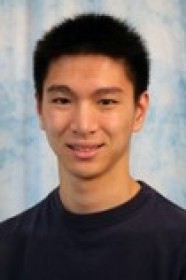
12:00 pm to 1:00 pm
Event Location: GHC 2109
Bio: Eugene Fang is a M.S. student in the Robotics Institute advised by William “Red” Whittaker. He received a B.S. in Electrical Engineering and Computer Sciences from the University of California, Berkeley in 2014. His current research focuses on route determination for planetary rovers.
Abstract: Today’s planetary robotic exploration is carried out by large, lumbering rovers. Due to the expense of such rovers, the resulting missions are risk averse. Small, high-cadence, minimalist rovers are poised to break new ground by expanding space exploration capabilities. Whether by decreasing overall mission costs or enabling symbiotic exploration among multiple low-cost rovers, these minimalist rovers can allow missions to be more risk tolerant and more rapidly explore areas previously deemed too treacherous.
Existing methods of localization and route determination of planetary rovers are expensive, both in computational time and power requirements. As a result, they are limited in their speed and performance even on today’s large, expensive rovers. The ability to quickly and efficiently estimate a rover’s route becomes even more crucial as the size, mass, computation, and power budgets continue to shrink. A method for inexpensive route determination will enable safer, faster, and smarter navigation of these minimalist rovers.
This research presents a novel approach for computationally efficient visual odometry with an unactuated downward looking monocular fisheye camera which is feasible for minimalist rovers from both a computation and electromechanical configuration standpoint. This new visual odometry approach is combined with a sun compass and pose graph optimization to provide high fidelity route determination.
